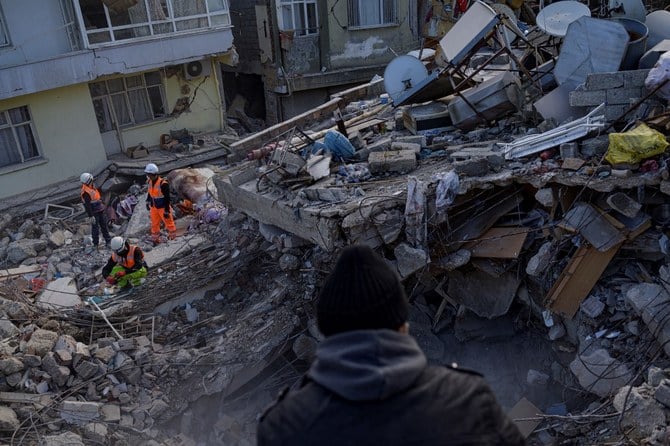
The coronavirus disease (COVID-19) pandemic is clearly a global crisis, bringing sadness and suffering as people die or are taken ill, causing an economic crisis, and exacerbating inequalities and divisions. At the same time, as crises often do, it has also brought out the best in many people. In some cases, people work through institutions that are designed to help those in need; in other cases, individuals are developing creative ways to help and connect with others.
Many front-line workers are taking risks to care for the sick and provide essential services. Health care workers, especially the doctors and nurses caring for patients with COVID-19, are particularly exposed to the virus, but many of them continue working to save lives and to ease the suffering of those who are sick. Many people that society often overlooks — such as grocery clerks, cleaners and taxi drivers — are now seen as critical to maintaining food supply and other vital services. They also take on significant risks, given their greater potential for exposure to the virus.
Some of the most touching examples of people’s responses to the pandemic have been efforts to show appreciation for these front-line workers, especially health care workers. From China to Lebanon, Italy to the US and more, entire communities have opened their windows, stood at their doors or climbed onto roofs, balconies or fire escapes to clap and cheer for doctors and nurses. These efforts have not only helped to boost the morale of medical workers; in some urban areas they have helped form new connections in the age of social distancing.
There are many examples of people making donations of money, food or essential items to help those directly affected by the virus or by the economic crisis. As the economic crisis has led to a massive growth in food insecurity, religious institutions, charities, food banks, restaurants and individuals have stepped up to provide food around the world, including to street children in India, refugees in the Middle East, and unemployed workers in the US. In just one example, well-known Spanish-American chef Jose Andres has worked through his charity, World Central Kitchen, to provide meals to those in need and to help boost struggling restaurants.
Multiple wealthy individuals and celebrities have made major donations to help provide food, medical equipment and protective gear, as well as to fund research and efforts to combat the virus. While high-profile donors have the means to provide large amounts of crucial funding, many of the most touching donations have come from individuals giving what they can to support their communities. People are giving to those in need in many ways, such as making and donating masks, providing food to health care workers, and offering free tutoring to children.
Human beings, as social creatures, are designed to connect with each other in person, especially to celebrate important moments in life, participate in the rituals that define those moments, and comfort each other in mourning. Sadly, large gatherings for weddings, birthdays, anniversaries, graduations and funerals are not safe at this time. It does not feel normal for people to mourn or celebrate while physically separated from many friends and family, but there are still ways to show love and support.
People are finding creative ways to celebrate together. Children often struggle to understand why they cannot have parties to celebrate their birthdays, so their communities are finding new ways to help them feel special. These include dropping off gifts and treats, forming local car “parades” to greet the child, and singing “Happy Birthday” from a safe distance. The pandemic has disrupted weddings around the world, but many couples and their families have still found ways to marry and celebrate. Some stream their ceremony online, scale down their ceremonies to a very small group, or prioritize being together over having the clothes and party they had planned. Their families are finding ways to celebrate with them, such as playing music from their cars while the couple dances. Many graduates are missing the usual graduation ceremonies and celebrations but are still finding ways to mark their accomplishments, with online get-togethers, small family celebrations, and more.
Many of the most touching donations have come from individuals giving what they can to support their communities.
Kerry Boyd Anderson
Mourning the loss of a loved one is a particularly difficult experience while keeping to the social distancing rules. Still, people are finding ways to connect and support each other. These include streaming funerals online, placing flowers in seats at a funeral to represent those who cannot be there in person, and virtual gatherings to remember the loved one with recollections, photos, music, etc.
Of course, there are many more examples of how people are showing kindness and support during this difficult time. Many teachers continue to determinedly teach children, albeit online. Religious leaders are finding creative ways to minister to people and support them during this time of anxiety and need. Many physical trainers, yoga teachers and others are providing classes online, sometimes for free or at a discount, to help people remain healthy.
There are many ways that people can contribute to their communities in the middle of this pandemic. The really good news is that there are far too many wonderful examples of individual kindness to record here. They provide lights of hope in these dark times.
Kerry Boyd Anderson is a writer and political risk consultant with more than 16 years’ experience as a professional analyst of international security issues and Middle East political and business risk. Her previous positions include deputy director for advisory with Oxford Analytica and managing editor of Arms Control Today. Twitter: @KBAresearch
Disclaimer: Views expressed by writers in this section are their own and do not necessarily reflect Arab News" point-of-view












